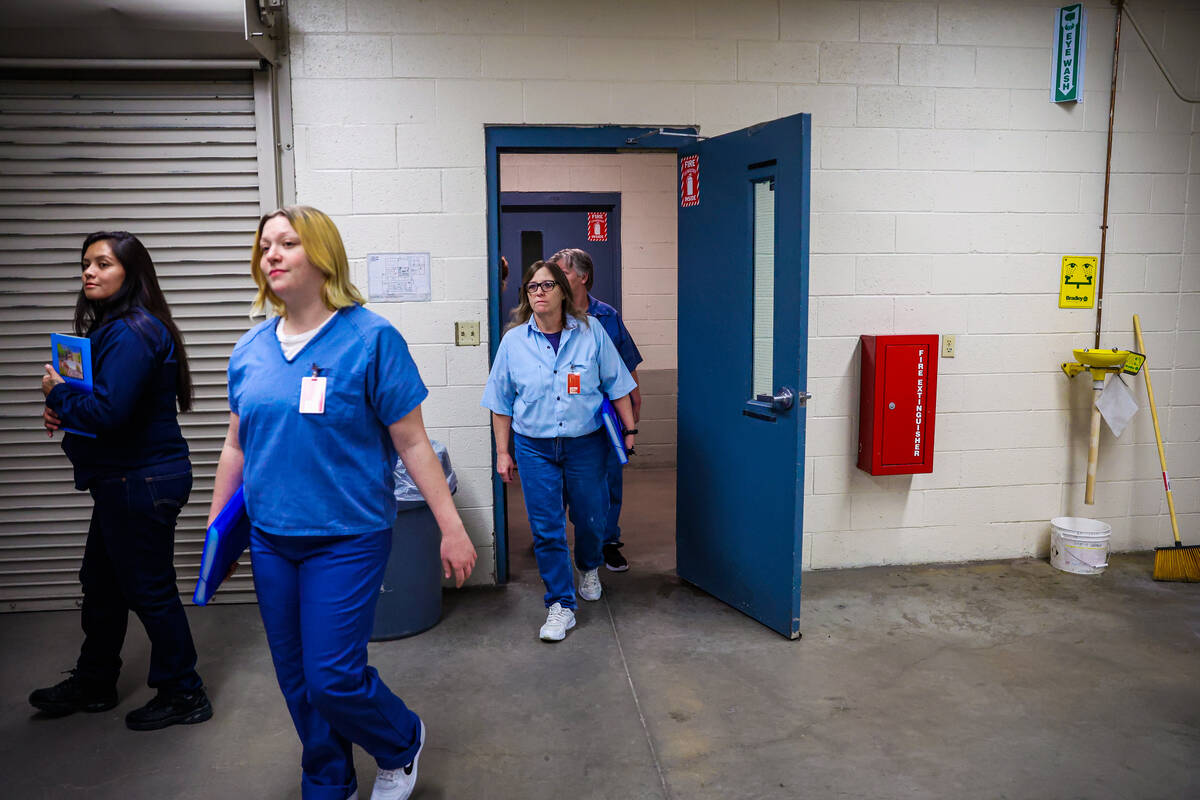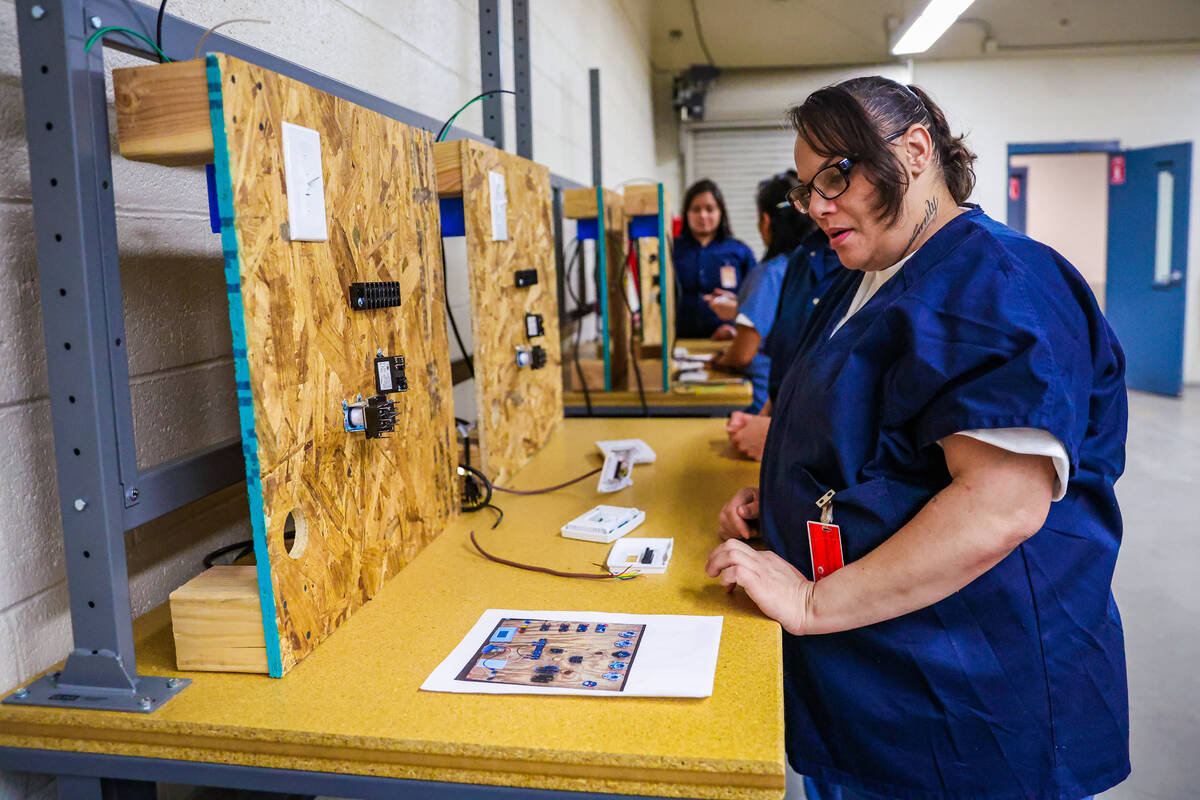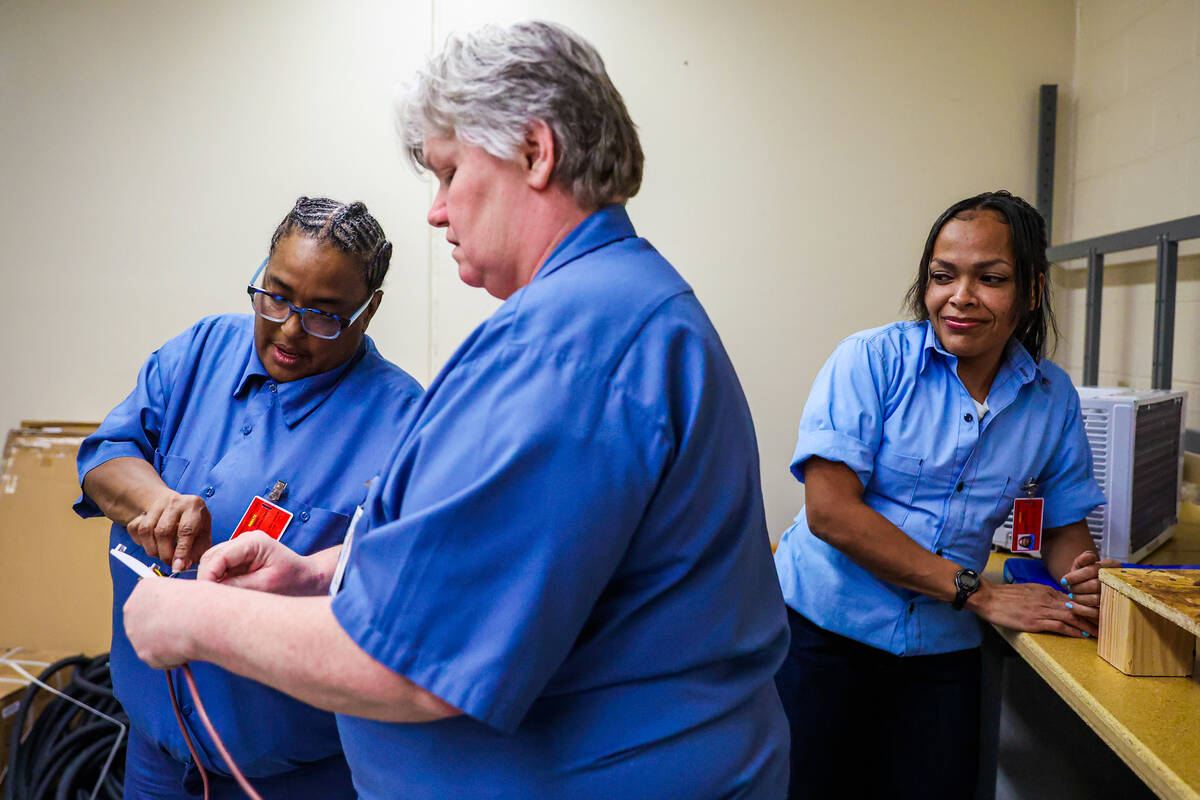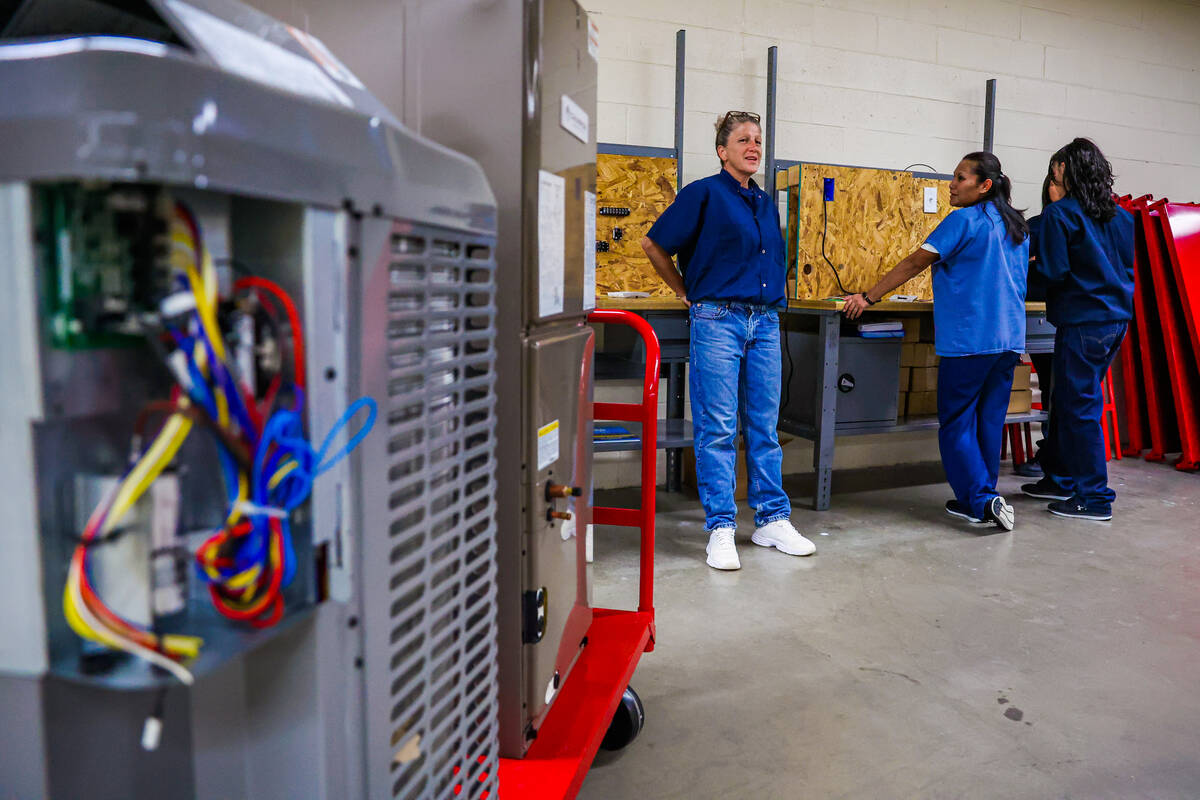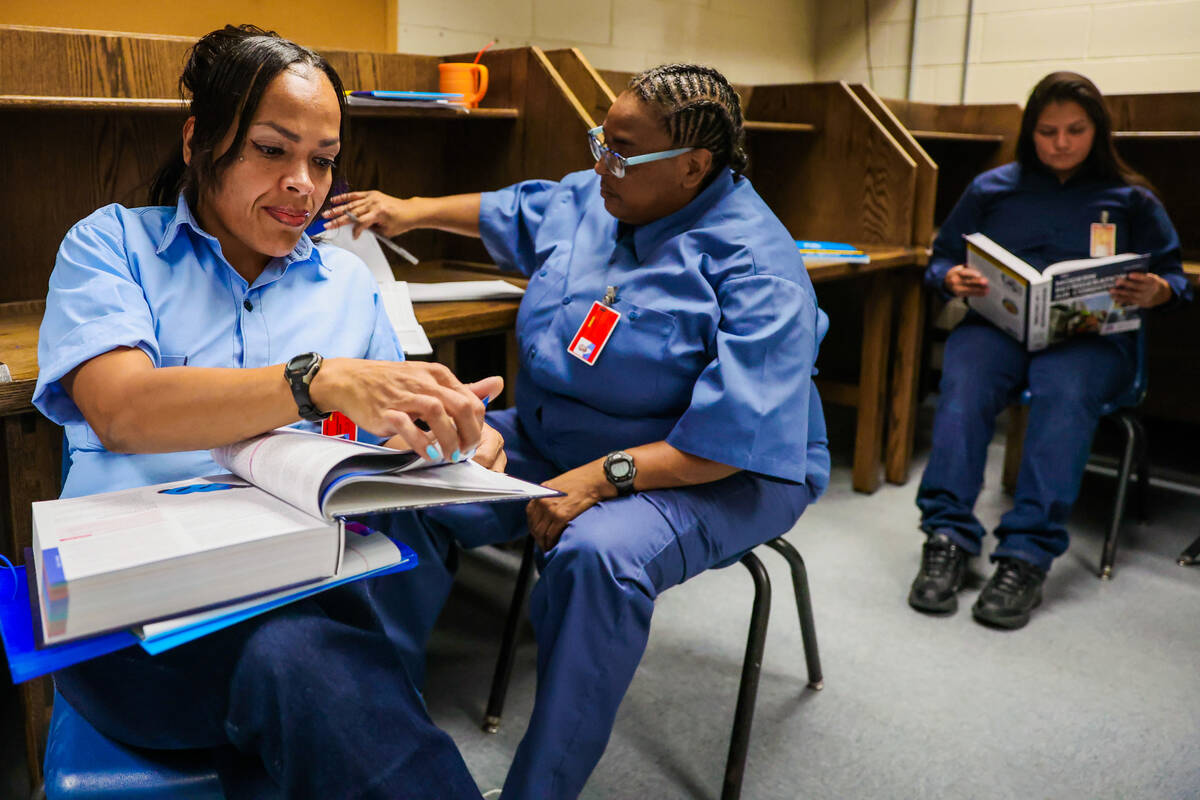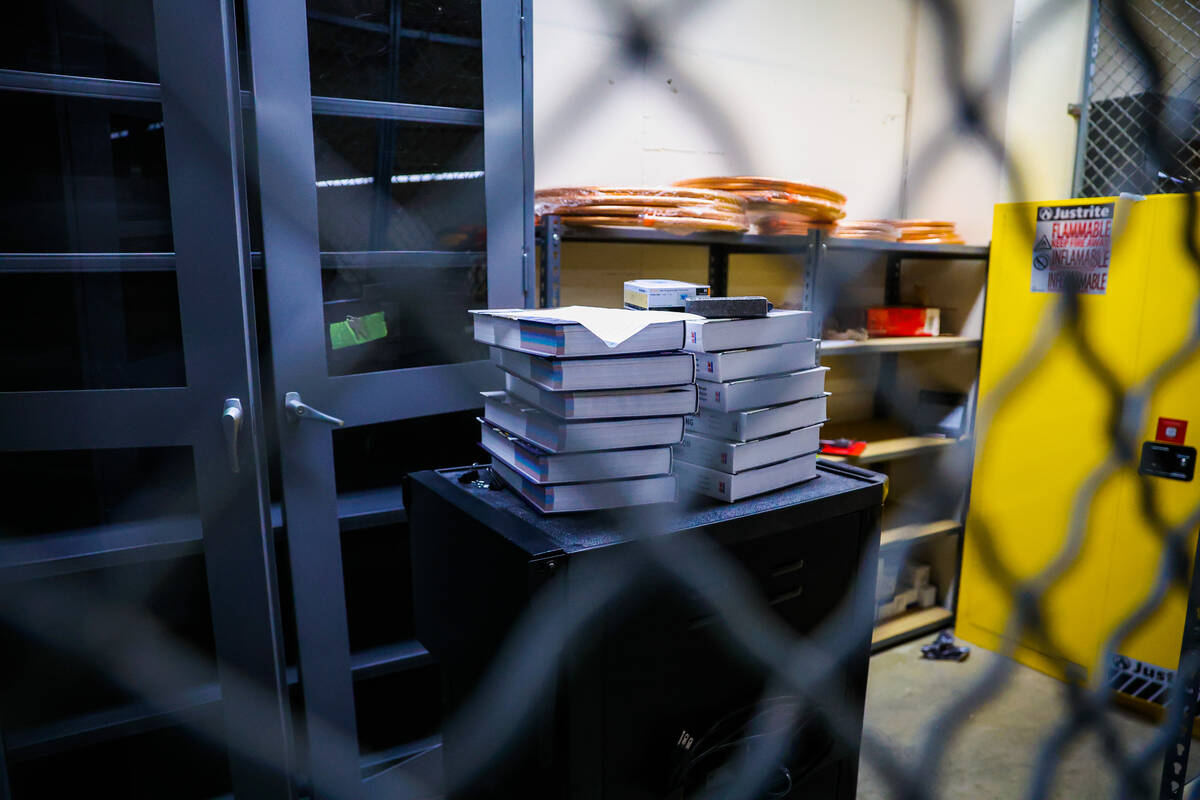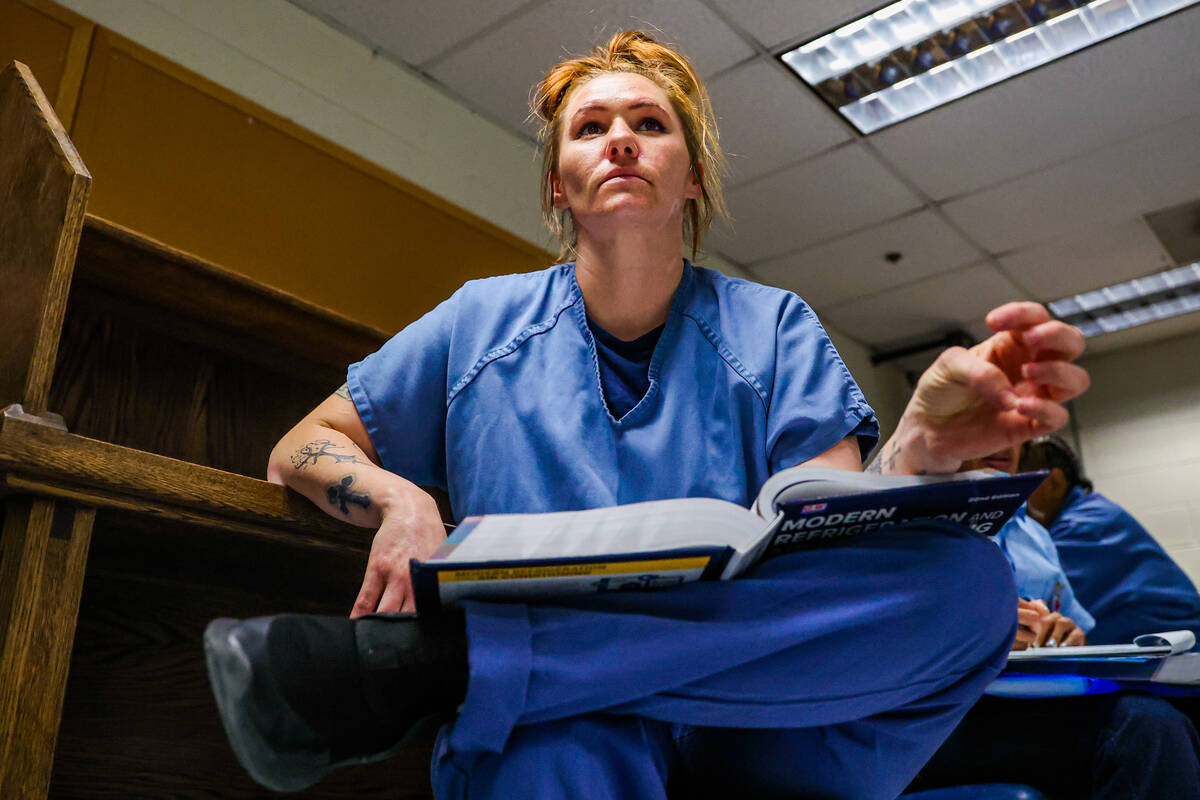‘Doing guy stuff’: Inmates at Nevada women’s prison embrace job-training program
Inside the halls of Nevada’s only women’s prison, the word ‘Cosmetology’ is painted on a light blue door. The room houses a job-training program that for a while, inmates said was the only one available to them.
But today, the facility has a new classroom: an HVAC, or heating, ventilation and air conditioning, laboratory. And for the 12 inmates selected for the lab’s inaugural class, HVAC represents a life-changing opportunity that defies gender-based norms.
Florence McClure Women’s Correctional Center’s new HVAC program, offered by the College of Southern Nevada and supported by a nearly $1.4 million dollar grant from T-Mobile, is the first of its kind, providing inmates with the kind of vocational training that has traditionally been offered in men’s prisons.
“I’m turning my life around,” said 58-year-old incarcerated HVAC student Karen Kincaid, through tears.
‘I can do anything a man can do’
For Kaitlyn Fugate, another student in the program, the class represents an opportunity that has been a long-time coming for female inmates.
“I can do anything a man can do,” Fugate, 24, said. “The discrimination is crazy, because if you give me the knowledge, I can figure it out.”
The first program at the facility was cosmetology, or the study of various beauty treatments, explained William Reubart, the prison’s warden. But Associate Warden Gabriela Najera said that over time, the Nevada Department of Corrections recognized that female offenders need diverse opportunities afforded to them.
“Just because you’re a female, that doesn’t mean that there’s only specific things that you should do, because that’s what society used to tell us before,” Najera said.
Several students said that heading to a male-dominated industry felt more empowering than daunting.
“Women are definitely a minority,” said incarcerated HVAC student Gabrielle Moore. “That gives us an asset, that gives us some leverage. Companies want diversity.”
Jason Mitchell, head of the HVAC Schoolhouse at the College of Southern Nevada and instructor for the new program, said that even outside prison walls, women are severely underrepresented in the industry.
“How many people are going to give them a chance? Because they’re convicted felons, and they’re women,” Mitchell said.
“We like doing ‘guy’ stuff,” Moore, 32, said. “We can get dirty.”
The fight for funding
The more than $100,000 worth of equipment needed to teach the class was made possible by the grant from T-Mobile that Reubart said is unlike one he’s ever seen before.
There are approximately 750 women incarcerated in Nevada, meaning that women make up less than 10 percent of the prison population statewide, Reubart said.
Female inmates receive a similarly low rate of funding, meaning that the facility is left “fighting for dollars,” Reubart said.
But for the College of Southern Nevada, launching the new program for female offenders was an important investment.
“When all of them get out, they’re all going to have a felony attached to their name,” said Genevieve Minter, prison education program manager at the college. Minter hopes that the program will help the women, once they are released, find jobs and stay out of prison.
The facility does see repeat offenders, such as Kincaid, who said that she has been in and out of prison since she was 17 years old.
One reason for this, Minter said, is that without opportunities like the new HVAC program, offenders tend to return to what they know.
“We’re not excusing anything that they did. We’re just trying to give them other opportunities so that they stop going back in there,” Minter said. “We view it as a good investment in our females, and so T-Mobile did too.”
Opening the door to a career
Mitchell said that one of his concerns about the program was ensuring that at the end of it, the students could find work.
“If they come to school, and we train them and then they don’t get a job, then what was it for?” Mitchell said.
While some businesses do not hire convicted felons, there are contractors that Mitchell said are willing to give his students a chance.
Organizations such as Women in HVACR, a group supporting women in the industry, and Hope for Prisoners, an organization that helps inmates reenter their community, are prepared to be a resource for students when they are released, Mitchell explained.
In Las Vegas, which this year saw record temperatures, there is a “huge need” for HVAC technicians, Mitchell said. The certificate that the students earn through the program will give them a leg up over other applicants.
Many students said they will definitely be pursuing HVAC work when they are released. “I have a trade,” Moore said. “I have something that I’m excited about.”
“We’re the poster child”
The program’s 12 students were carefully selected, Najera explained. Inmates whose crimes would not prevent them from getting hired and who will be released soon were prioritized.
The class’s instructor, Spencer Dunwoody, said that so far, his students are receptive, engaged and ask good questions.
Teaching inside prison has led to bumps in the road. The class textbook first arrived in hardcover, which is not allowed as it could be used to hide contraband, Mitchell explained.
But Minter, who has taught in prisons, said that she believes once softcover books arrive, students will start reading ahead.
“They’re so grateful,” she said. “They know that not everybody wants to come and teach in prison.”
Staff and offenders alike hope to see the program continue beyond its inaugural class. But its students said they know there is a spotlight shining on them, and their actions will directly impact the program’s success.
To remain in the program, inmates cannot receive any write-ups for infractions, Kincaid explained.
“We’re the poster child,” Moore said. “But that’s also exciting, because it gives us even more of an incentive to try even harder.”
Contact Estelle Atkinson at eatkinson@reviewjournal.com. Follow @estellelilym on X and @estelleatkinsonreports on Instagram.




